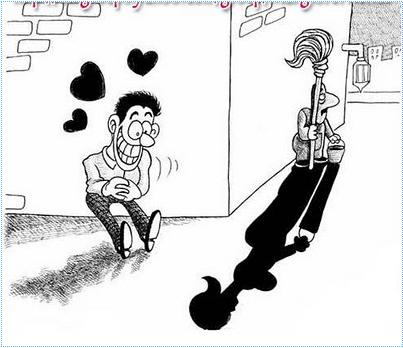Lucchese DeCavalcante
JF-Expert Member
- Jan 10, 2009
- 5,471
- 733

Unakaa sehemu kama hii bila kujali onyo..

When you believe on "love at first sight"
3. Wee ni mswahili, pale uamkapo asubuhi na kumtuma dogo au kwenda mwenyewe kununua chapati ambazo unafungiwa kwenye gazeti. Unakula chapati zikiwa na wino mweusi wa gazeti, unashiba na kulala kwenye mkeka na lile gazeti (ulilofungiwa chapati) unaanza kulisoma tena.
4.Wewe ni mswahili pale upangapo foleni za kwenda bafuni kuoga kwenye nyumba za kupanga. Wababa/Washkaji kusimama nje ya bafu wanasubiri utoke huku na miswaki yao mdomoni na hapo hapo wanajadili yanga, simba, arsenal, man etc ilivolala jana ilhali wengine hawana hata TV, kumbe walicheki kupitia dirisha, jirani, bar etc!
5. When you use words like, loooooooooooooong, wengiiiiiiiiiiiiiiiiiiiii, tamuuuuuuuuuuuu, mdogoooooooo, ya motooooooooooo, baridiiiiiiiiiiiii to express extreme sizes quality and quantity.
ENDELEA...
4.Wewe ni mswahili pale upangapo foleni za kwenda bafuni kuoga kwenye nyumba za kupanga. Wababa/Washkaji kusimama nje ya bafu wanasubiri utoke huku na miswaki yao mdomoni na hapo hapo wanajadili yanga, simba, arsenal, man etc ilivolala jana ilhali wengine hawana hata TV, kumbe walicheki kupitia dirisha, jirani, bar etc!
5. When you use words like, loooooooooooooong, wengiiiiiiiiiiiiiiiiiiiii, tamuuuuuuuuuuuu, mdogoooooooo, ya motooooooooooo, baridiiiiiiiiiiiii to express extreme sizes quality and quantity.
ENDELEA...